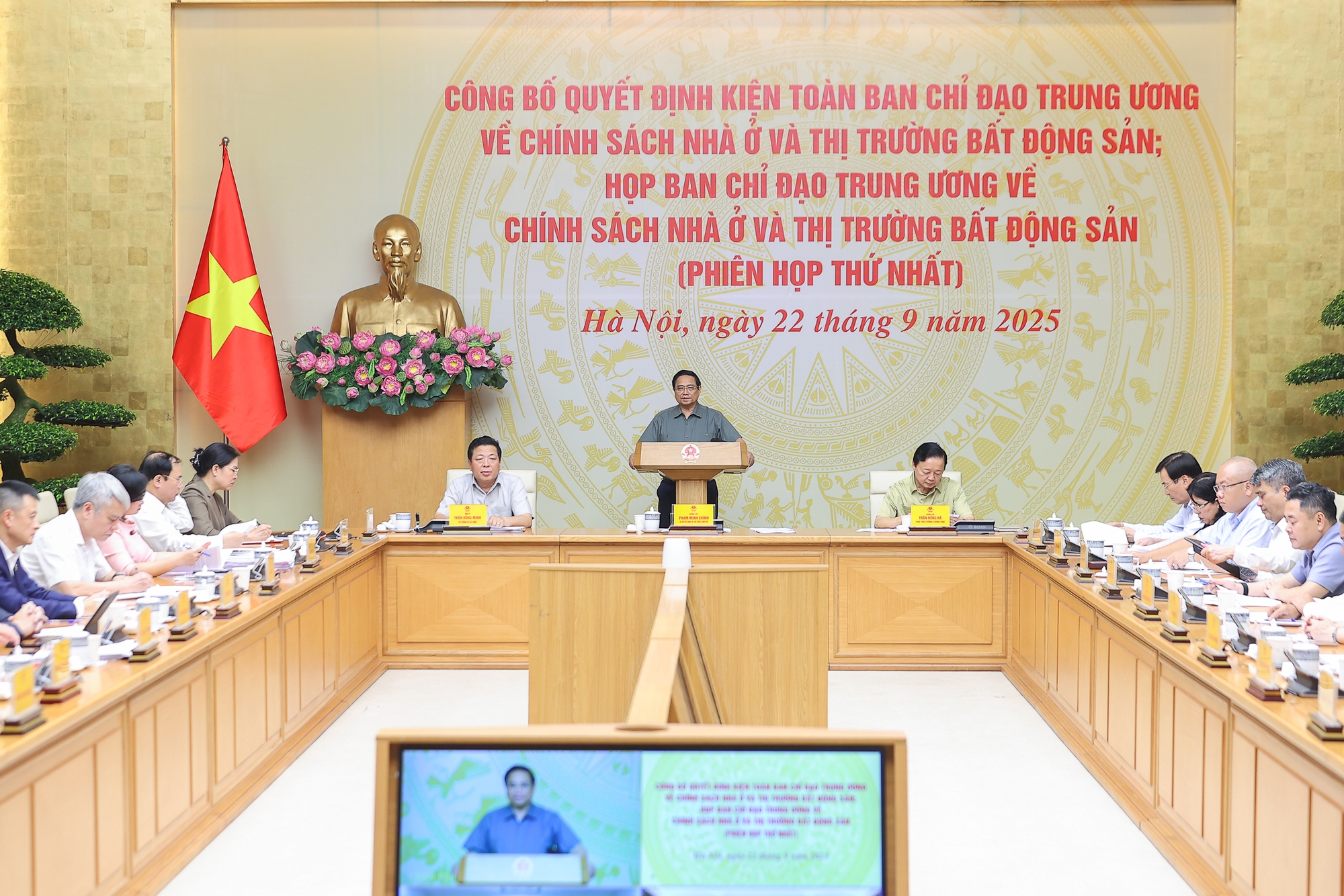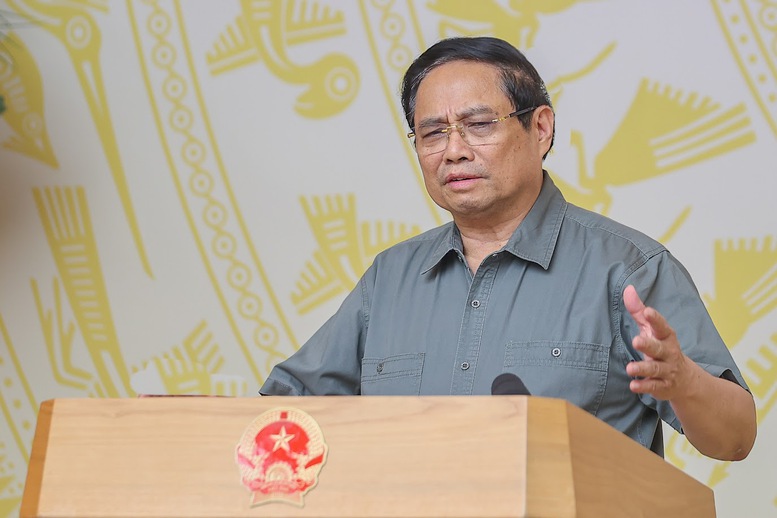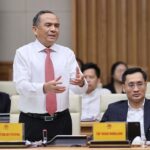
Session Overview (Photo: VGP/Nhật Bắc)
During the first meeting of the Central Steering Committee on Housing Policy and Real Estate Market on the afternoon of September 22, Prime Minister Pham Minh Chinh emphasized that the real estate market is a crucial channel for capital mobilization and allocation, significantly impacting other economic sectors and enhancing the quality of life for citizens. However, challenges persist in areas such as land management, bidding processes, land clearance, and resettlement.
The Prime Minister highlighted disparities in the housing segment, noting a predominance of high-end products, particularly in major cities, with occasional sharp price increases. He urged an investigation into whether the real estate market is being manipulated, aiming to address issues like hoarding, price gouging, and market distortion. He stressed the need for a solution to the persistent rise in condominium prices.
“Many people need housing but cannot afford it due to exorbitant prices. Condominiums priced at 70 million or 100 million VND per square meter are beyond the reach of most buyers,” the Prime Minister remarked during the session.

Prime Minister Pham Minh Chinh addressing the session (Photo: VGP/Nhật Bắc)
Prime Minister Pham Minh Chinh reaffirmed the Party and State’s clear commitment to prioritizing fairness, progress, and social welfare over mere economic growth. Ensuring citizens’ right to housing aligns with the principle of “settled life, prosperous career.”
He emphasized that developing the real estate market and social housing is a significant endeavor, requiring comprehensive and effective solutions. This demands close coordination among central and local authorities, the State, businesses, and citizens.
The Prime Minister outlined 11 key task groups and solutions to increase supply, reduce costs, and achieve reasonable commercial housing prices:
First, enhance awareness and responsibility among all stakeholders, fostering appropriate thinking, decisive action, and accountability at the leadership level.
Second, continue addressing institutional, mechanism, and policy challenges. For instance, alongside mandating a minimum of 20% of commercial housing projects for social housing, consider allocating 20% of social housing projects for commercial use.
Third, review and streamline administrative procedures, promote decentralization, and delegate authority related to the real estate market and social housing within the purview of management agencies, reducing compliance costs for citizens and businesses.
Fourth, implement measures to lower real estate prices and increase supply to meet demand, including resolving stalled projects, promoting social housing, reducing land prices, and cutting costs. Address infrastructure issues in transportation, utilities, and telecommunications.
Fifth, regarding land prices, strengthen state management and regulation, ensuring efficient land use with simplified and transparent procedures.
Sixth, utilize fiscal policies on taxes, fees, and charges for regulation, contributing to cost reduction. Employ other policy tools such as lending and bond issuance.
Seventh, revise income thresholds for social housing eligibility, allowing local governments flexibility in adjustments.
Eighth, the State Bank should develop mechanisms and policies for appropriate lending interest rates and terms, with streamlined procedures. Implement policies and sanctions to differentiate between well-performing and underperforming banks. Encourage banks to uphold responsibility, national spirit, and community values, while leveraging technology to reduce costs.
Ninth, local governments should balance budgets to invest in infrastructure and provide interest rate subsidies for loans. Ministries should expedite the legal framework and procedures for establishing the National Housing Fund, aiming for completion in September.
Tenth, establish price fluctuation ranges for raw materials aligned with market dynamics, delegating implementation to local governments for practicality and transparency.
Eleventh, the Ministry of Construction should research and propose a government resolution, assigning capable and reputable enterprises to undertake social housing projects, ensuring a balance of interests among the State, citizens, and businesses.
Hung Yen to Launch 7,000 Billion VND Project in Prime Location
Hung Yen is set to initiate a 7,000 billion VND social housing project in Pho Hien Ward.
Chairman of HoREA Le Hoang Chau: To Lower Housing Prices, All Costs Must Be Reduced Simultaneously, Including a Special Type of Expense
Mr. Le Hoang Chau, Chairman of the Ho Chi Minh City Real Estate Association, asserts that to effectively lower housing prices, the primary focus must be on reducing costs across the board. This includes land use fees, construction expenses, and input costs such as sand, gravel, steel, cement, electricity, and fuel. Additionally, Mr. Chau emphasizes the need to reduce a critical yet often overlooked cost: compliance expenses associated with legal and regulatory requirements.
Letting the Market Reign: How Land Prices Drive Housing Costs and Vice Versa
According to the Chairman of the Vietnam Association of Construction Contractors, the 2024 Land Law stipulates that land prices are determined by market mechanisms. However, if the market is left to decide entirely, the state will struggle to control prices, leading to an endless cycle where “land prices chase housing prices, and housing prices rise with land prices.”













































